Politics
SCO moot: Pakistan advises India against ‘weaponising terrorism for diplomatic point scoring’
Published
3 years agoon
By

- FM Bilawal urges cooperation among SCO states as India raises terrorism issue.
- “A peaceful Afghanistan is a key to regional integration and global peace,” Bilawal says.
- Indian FM says there is “no justification for terrorism” and it must be stopped.
GOA: Foreign Minister Bilawal Bhutto-Zardari on Friday, without naming India, warned the Shanghai Cooperation Organisation (SCO) member states against “weaponising terrorism for diplomatic point scoring” as India raises terrorism issue.
Indian External Affairs Minister Subrahmanyam Jaishankar, prior to Bilawal’s speech, said the menace of terrorism continues unabated, adding that taking eyes of this menace is detrimental to the security interests of all.
“The collective security of our peoples is our joint responsibility. Terrorism continues to threaten global security. Let’s not get caught up in weaponising terrorism for diplomatic point scoring,” Bilawal said while addressing the SCO Council of Foreign Ministers (CFM) summit in Goa.
The foreign minister said: “When I speak on this topic [terrorism], I do so not only as the foreign minister of Pakistan whose people have suffered the most in terms of number of attacks and number of casualties. I also speak as the son whose mother was assassinated at the hands of terrorists.
“I feel the pain of this loss, empathise with victims across the world a way most can’t. I and my country are firmly committed to be part of regional and global efforts for eradicating this menace.”
📸 FM @BBhuttoZardari among SCO Foreign Ministers participating in Council of Foreign Ministers in Goa.#PakFMatSCO
— Spokesperson 🇵🇰 MoFA (@ForeignOfficePk) May 5, 2023
🇵🇰🤝🌍 pic.twitter.com/64npTyMFsB
The foreign minister — who is leading the country’s delegation which arrived in Goa on Thursday to attend the two-day meeting of the SCO CFM — emphasised that the idea of eradicating this menace requires not only a “comprehensive approach but also a collective approach”.
He said that the root causes need to be addressed as well as the threats posed by specific groups.
“It requires that we let this challenge unite us to fight it rather than divide us to become its victim. Our success requires us to isolate this issue from geo-political partisanship,” he maintained, adding that practical, pragmatic solutions exist for us to put an end to this chapter once and for all.
“We must stop conflating non-state actors with state actors. Condemn all forms of terrorism including state-sponsored terrorism,” he stressed.
‘Cooperation among terrorists is alarming’
Highlighting the importance of a peaceful and stable Afghanistan, Bilawal said that it is not only crucial for regional integration and economic cooperation, but also for global peace and stability.
“When great powers play the role of peacemaker, we can unlock the potential of peace while paving the way for greater cooperation, regional integration and economic opportunities for our peoples,” he said.
The foreign minister said that the situation in Afghanistan presents new challenges as well as opportunities.
“We continue to call the international community to meaningfully engage with the interim Afghan government to better understand and influence the course of events. After being the playground for great powers, time and time again, we owe it to the people of Afghanistan to not repeat the mistakes of the past.
“A united international community must continue to urge the Afghan authorities to adopt universally-accepted principles of political inclusivity, and respecting the rights of all Afghans, including girls’ right to education.”
‘Peaceful and stable Afghanistan important’
Bilawal went on to say that the international community should also help build their counter-terrorism capacity for the security of Afghanistan, the region and the world at large.
FM @BBhuttoZardari in his statement at SCO CFM reiterated Pakistan's commitment to multilateralism for maintaining international peace and harmony.
— Spokesperson 🇵🇰 MoFA (@ForeignOfficePk) May 5, 2023
💬 “Pakistan remains committed to multilateralism and continues to play a leading role at all international forums.”#PakFMatSCO pic.twitter.com/xXWtqGwLkH
“It is alarming that terrorist groups within Afghanistan are cooperating amongst themselves more than we are as the international community,” he lamented, adding that as the country that will be the first but not the last to suffer the consequences, Pakistan calls on the interim Afghan authorities to uphold their commitments on not allowing the use of Afghan soil for terrorism.
“A peaceful and stable Afghanistan is a key not only to regional integration and economic cooperation but also to global peace and stability. We believe the SCO Afghanistan Contact Group can play a role in coordinating practical cooperation with Afghanistan,” he said.
FM Bilawal lauds China’s commendable role
Mentioning China’s “commendable” role in bridging differences between Saudi Arabia and Iran — two countries that are also associated with the SCO, the minister said: “When great powers play role of peace maker, we can unlock potential of peace while paving way for greater cooperation, regional integration and economic opportunities for our peoples.”
FM @BBhuttoZardari underscored importance of enhanced coop. & reg. integration
— Spokesperson 🇵🇰 MoFA (@ForeignOfficePk) May 5, 2023
💬"When great powers play role of peace maker, we can unlock potential of peace while paving way for greater cooperation, regional integration and economic opportunities for our peoples"#PakFMatSCO pic.twitter.com/gn7ZYUnLme
In March, China’s President Xi Jinping helped broker a surprise deal between regional rivals Tehran and Riyadh to end a seven-year rift and restore diplomatic ties — a display of China’s growing influence in the region.
‘Pakistan’s strong commitment to SCO’
Reiterated Pakistan’s strong commitment to SCO, the foreign minister said: “There couldn’t be a more powerful indication of the importance that Pakistan attaches to the SCO than my presence here in Goa for this CFM.”
He underscored the importance that Pakistan accords to the principles of mutual trust and shared development as enshrined in the “Shanghai Spirit”.
Pakistan, Bilawal said, strongly believes in and fully adheres to principles of mutual trust and shared development enshrined in the original “Shanghai Spirit”.
Commenting on the organisation’s role in enhancing regional connectivity, the top Pakistani diplomat said: “SCO could be a key platform for taking the vision of Eurasian connectivity to the next level.”
Further sharing his vision for poverty alleviation in the region, Bilawal highlighted that there is a very strong and compelling case for closer cooperation for poverty alleviation under SCO.
“The establishment of the Special Working Group on Poverty Alleviation proposed by Pakistan will be a step in that direction,” he said.
Emphasising on the SCO’s role as an intergovernmental organisation, he spoke about how the entity has emerged as a platform for promoting mutual understanding, security and development through constructive and mutually beneficial cooperation.
‘CPEC — force multiplier for regional connectivity’
Shedding light on the significance of the China-Pakistan Economic Corridor (CPEC) on the region, he said that the project can be a force multiplier for regional connectivity.
“For too long, we have lamented the lack of connectivity between our economies — an impediment to regional trade and investment,” he said.
Bilawal maintained that CPEC does not only connect Pakistan to its neighbour China but also offers all countries invested in the commonality of the future of this region to take the journey further and connect the dots towards full regional economic integration.
Pakistan remains ‘committed to multilateralism’
Given Pakistan’s fight with climate change as one of the worst-affected nations in the world, the foreign minister informed the fellow participants present at the summit about the country’s role in pushing for global discourse on climate change.
“Pakistan has emerged as an important voice in the global discourse on climate change in the aftermath of that natural calamity,” Bilawal said.
In his address, the minister reiterated Pakistan’s commitment to multilateralism for maintaining international peace and harmony.
“Pakistan remains committed to multilateralism and continues to play a leading role at all international forums,” he reiterated.
No justification for terrorism: Jaishankar
During the moot, Indian External Affairs Minister Subrahmanyam Jaishankar said: “As SCO chair we’ve initiated an unprecedented engagement with SCO observers and dialogue partners by inviting them to participate in more than 14 social-cultural events.”
Talking to the participants, he said that the SCO platform was in its third decade of existence.
“This is an opportune time for reform and modernisation of the SCO to keep it relevant in a rapidly reforming world,” he said, adding that he was pleased to note that “discussions for reform and modernisation have already commenced.”
#WATCH | EAM Dr S Jaishankar welcomes Pakistan's Foreign Minister Bilawal Bhutto Zardari for the Meeting of the SCO Council of Foreign Ministers in Goa pic.twitter.com/TVe0gzml1U
— ANI (@ANI) May 5, 2023
Furthermore, the host reiterated his country’s “long-standing” demand that English be made the third official language of the moot. At the moment Russian and Mandarin are the languages used at the form officially.
Dr Jaishankar contended that using English would enable a deeper engagement from English-speaking states and take the SCO to reach a larger international platform.
He also shared that progress had been made of including Iran and Belarus as full members of the SCO.
During his speech, the host also discussed the rise of terrorism in the world.
“While the world faced COVID-19 and its consequences, the menace of terrorism continues unabated,” he said, adding that taking eyes of this menace is detrimental to the security interests of all.
Dr Jaishankar added that there was “no justification for terrorism” and that it must be stopped in “all its forms and manifestations” including cross-border terrorism.
“Channels of financing terror must be seized and blocked without distinction,” he stressed, adding that combatting terrorism was one of the original mandates of the SCO.
Pakistan ‘satisfied’ with Indian welcome
Upon arrival, Bilawal was welcomed by Dr Jaishankar. The meeting of the CFM which began in the morning and by noon, the “decision document” will be signed, which will be followed by a working lunch.
Foreign Office Spokesperson Mumtaz Zehra Baloch, while speaking to Geo News, said India has given Pakistan no reason to complain regarding Bilawal’s visit to attend SCO moot in Goa.
“They haven’t given us a chance to complain. All is well so far,” she said.
When asked if Bilawal’s handshake with his Indian counterpart Jaishankar was reflective of past bitterness, Baloch said: “You are giving it a lot of importance. It was a routine formality.”
A day earlier, Bilawal arrived in the Indian city on his first-ever visit to India, hoping for a “successful” meeting of the SCO foreign ministers.
Following his arrival, Bilawal became the first Pakistani foreign minister who visited the neighbouring country after a gap of nearly 12 years.
Speaking to the media after landing in Goa, the foreign minister said: “I am happy that I have reached here in Goa to attend the SCO meeting. I hope that the SCO CFM will be a success.”
The spokesperson further told Geo News that a host welcomed Bilawal like they did for other foreign ministers.
Responding to a question regarding Prime Minister Shehbaz Sharif’s visit to India in July to attend the SCO summit, the FO spokesperson said it is too early to say anything at the moment.
During the visit, Bilawal — alongside his delegation — will engage with several of his counterparts from different nations.
You may like
-
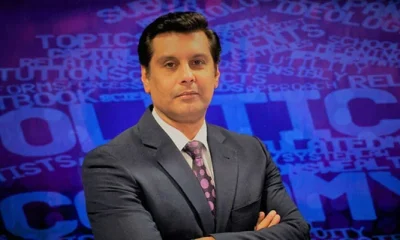

Arshad Sharif’s wife files lawsuit against Kenyan police over journalist’s killing
-
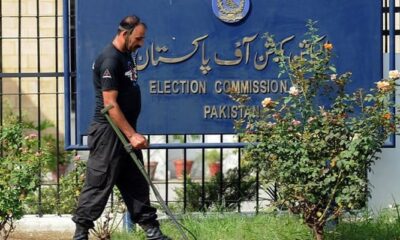

PTI urges ECP to issue order on election symbol
-


Task force on the cards as NAB aims to boost accountability process
-
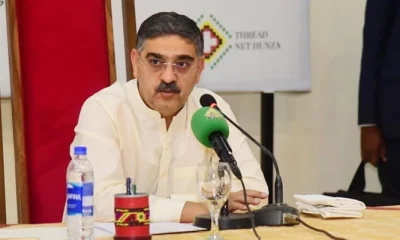

PM Kakar to attend UN climate moot in UAE next month
-
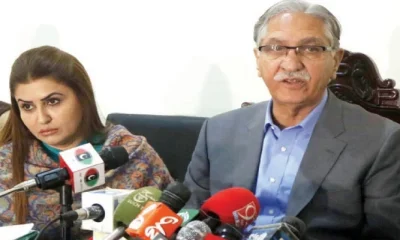

PPP raises concerns over ‘special relief’ to Nawaz on return
-
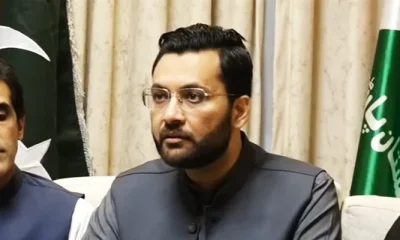

Farrukh Habib parts ways with Imran Khan-led PTI

In a unanimous verdict, a five-member bench of the Supreme Court on Monday declared civilians’ trials in military courts null and void as it admitted the petitions challenging the trial of civilians involved in the May 9 riots triggered by the arrest of Pakistan Tehreek-e-Insaf (PTI) chief Imran Khan in a corruption case.
The five-member apex court bench — headed by Justice Ijaz Ul Ahsan, and comprising Justice Munib Akhtar, Justice Yahya Afridi, Justice Sayyed Mazahar Ali Akbar Naqvi and Justice Ayesha Malik — heard the petitions filed by the PTI chief and others on Monday.
The larger bench in its short verdict ordered that 102 accused arrested under the Army Act be tried in the criminal court and ruled that the trial of any civilian if held in military court has been declared null and void.
The apex court had reserved the verdict earlier today after Attorney General of Pakistan (AGP) Mansoor Usman Awan completed his arguments centred around the domain and scope of the military courts to try the civilians under the Army Act.
At the outset of the hearing today, petitioner lawyer Salman Akram Raja told the bench that trials of civilians already commenced before the top court’s verdict in the matter.
Responding to this, Justice Ahsan said the method of conducting proceedings of the case would be settled after Attorney General of Pakistan (AGP) Mansoor Usman Awan completed his arguments.
Presenting his arguments, the AGP said he would explain to the court why a constitutional amendment was necessary to form military courts in 2015 to try the terrorists.
Responding to Justice Ahsan’s query, AGP Awan said the accused who were tried in military courts were local as well as foreign nationals.
He said the accused would be tried under Section 2 (1) (D) of the Official Secrets Act and a trial under the Army Act would fulfill all the requirements of a criminal case.
“The trial of the May 9 accused will be held in line with the procedure of a criminal court,” the AGP said.
The AGP said the 21st Amendment was passed because the terrorists did not fall in the ambit of the Army Act.
“Amendment was necessary for the trial of terrorists [then] why amendment not required for the civilians? At the time of the 21st constitutional amendment, did the accused attack the army or installations?” inquired Justice Ahsan.
AGP Awan replied that the 21st Amendment included a provision to try accused involved in attacking restricted areas.
“How do civilians come under the ambit of the Army Act?” Justice Ahsan asked the AGP.
Justice Malik asked AGP Awan to explain what does Article 8 of the Constitution say. “According to Article 8, legislation against fundamental rights cannot be sustained,” the AGP responded.
Justice Malik observed that the Army Act was enacted to establish discipline in the forces. “How can the law of discipline in the armed forces be applied to civilians?” she inquired.
The AGP responded by saying that discipline of the forces is an internal matter while obstructing armed forces from discharging duties is a separate issue.
He said any person facing the charges under the Army Act can be tried in military courts.
“The laws you [AGP] are referring to are related to army discipline,” Justice Ahsan said.
Justice Malik inquired whether the provision of fundamental rights be left to the will of Parliament.
“The Constitution ensures the provision of fundamental rights at all costs,” she added.
If the court opened this door then even a traffic signal violator will be deprived of his fundamental rights, Justice Malik said.
The AGP told the bench that court-martial is not an established court under Article 175 of the Constitution.
At which, Justice Ahsan said court martials are not under Article 175 but are courts established under the Constitution and Law.
After hearing the arguments, the bench reserved the verdict on the petitions.
A day earlier, the federal government informed the apex court that the military trials of civilians had already commenced.
After concluding the hearing, Justice Ahsan hinted at issuing a short order on the petitions.
The government told the court about the development related to trials in the military court in a miscellaneous application following orders of the top court on August 3, highlighting that at least 102 people were taken into custody due to their involvement in the attacks on military installations and establishments.
Suspects express confidence in mly courts
The same day, expressing their “faith and confidence” in military authorities, nine of the May 9 suspects — who are currently in army’s custody — moved the Supreme Court, seeking an order for their trial in the military court be proceeded and concluded expeditiously to “meet the ends of justice”.
Nine out of more than 100 suspects, who were in the army’s custody, filed their petitions in the apex court via an advocate-on-record.
The May 9 riots were triggered almost across the country after former prime minister Imran Khan’s — who was removed from office via a vote of no confidence in April last year — arrest in the £190 million settlement case. Hundreds of PTI workers and senior leaders were put behind bars for their involvement in violence and attacks on military installations.
Last hearing
In response to the move by the then-government and military to try the May 9 protestors in military courts, PTI Chairman Imran Khan, former chief justice Jawwad S Khawaja, lawyer Aitzaz Ahsan, and five civil society members, including Pakistan Institute of Labour Education and Research (Piler) Executive Director Karamat Ali, requested the apex court to declare the military trials “unconstitutional”.
The initial hearings were marred by objections on the bench formation and recusals by the judges. Eventually, the six-member bench heard the petitions.
However, in the last hearing on August 3, the then-chief justice Umar Ata Bandial said the apex court would stop the country’s army from resorting to any unconstitutional moves while hearing the pleas challenging the trial of civilians in military courts.
A six-member bench, led by the CJP and comprising Justice Ijaz Ul Ahsan, Justice Munib Akhtar, Justice Yahya Afridi, Justice Sayyed Mazahar Ali Akbar Naqvi, and Justice Ayesha Malik, heard the case.
In the last hearing, the case was adjourned indefinitely after the Attorney General for Pakistan (AGP) Mansoor Usman Awan assured the then CJP that the military trials would not proceed without informing the apex court.
Politics
Arshad Sharif’s wife files lawsuit against Kenyan police over journalist’s killing
Published
2 years agoon
By
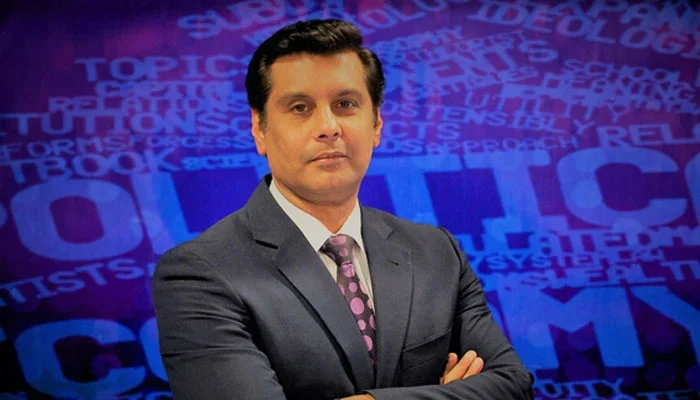
- Javeria Siddique filed lawsuit to “get justice for her husband”.
- Lawsuit also seeks “public apology” from Kenyan attorney general.
- Journalist was shot dead in October 2022 by Kenyan police officers.
NAIROBI: Slain journalist Arshad Sharif’s wife has registered a case against the Kenyan Elite police unit for her husband’s murder in Kenya, reported The News.
Javeria Siddique in her petition has made the attorney general of Kenya, national police service of the country and the director public prosecution respondents.
She has urged that the officers involved in Sharif’s murder be put on trial and be punished for their crime.
She urged the court to issue directives to the Kenyan attorney general (AG) to apologise to Sharif’s family within seven days of court’s orders, admit facts, accept responsibility and issue a written apology at public level.
Sharif’s widow, while confirming the filing of the case, said: “I have got a case registered in Nairobi for seeking justice in murder case of my husband. We got the case registered against general service unit of Kenya because they committed crime publicly and then admitted it was matter of mistaken identity. But to me it was targeted murder. But Kenyan government never apologised. They never contacted us.”
The registration of the case comes after it was reported the five Kenyan police officers who were involved in the killing quietly resumed their duties without any action taken against them.
Nine months after the killing of the journalist at a roadblock in a remote part of the East African country, the five police officers involved in the brutal killing are enjoying full police perks and their suspensions have turned out to be only a whitewash by the Kenyan authorities.
A trusted security source revealed that the five cops involved in the fatal shootout are back to work and two of them have been promoted to senior ranks.
Kenya’s Independent Policing and Oversight Authority (IPOA), the body that is tasked with investigating the conduct of police officers, despite making a promise to give an update on Sharif’s murder within weeks has not made its findings public in over nine months.
Sharif had arrived in the Kenyan capital on August 20 and died on October 23 last year in a shootout in which his driver Khurram Ahmad survived miraculously.
The 49-year-old had fled Pakistan in August to avoid arrest after he was slapped with several cases including sedition charges over an interview with Shahbaz Gill, a former aide of Imran Khan.
After reaching Kenya’s capital Nairobi, Sharif stayed at the Riverside penthouse of businessman Waqar Ahmad who is also Khurram’s brother who was driving him when he was killed.
The journalist was being driven from Ammodump Kwenia training camp, a joint which is owned by Waqar and they were heading to Nairobi County where he was staying.
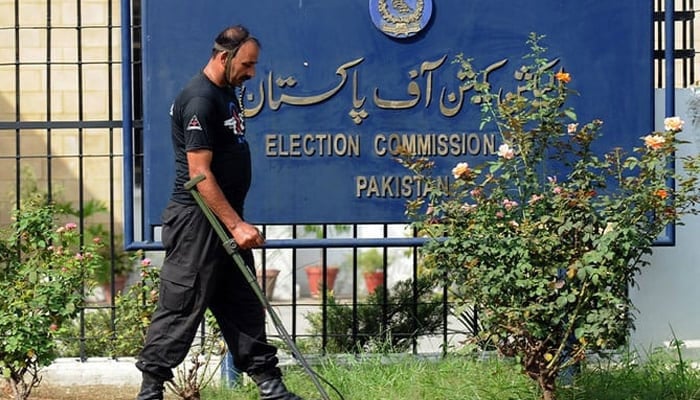
- ECP notice on inter-party elections “serious mistake,” says PTI.
- ECP has no justification for depriving PTI of symbol: Senator Zafar.
- 41 days passed but detailed decision not issued yet: PTI’s counsel.
ISLAMABAD: The Pakistan Tehreek-e-Insaf (PTI) has urged the Election Commission of Pakistan (ECP) to issue its verbal order regarding issuance of election symbol and reminded the electoral body of its constitutional duty to hold free and fair elections in the country, The News reported on Thursday.
Senator Barrister Syed Ali Zafar, the party’s counsel, on Wednesday filed an application with the Election Commission requesting for issuance of a detailed written order in the interest of justice and fairness.
The party has urged the Election Commission to issue a detailed decision without delay in light of its announcement concerning issuance of election symbols.
According to Senator Zafar, the Election Commission had issued a notice to the PTI for refusing to issue the symbol of “bat” on the basis of intra-party elections.
He insisted the commission’s notice on the basis of inter-party elections was a serious mistake, as the PTI had held intra-party elections on June 9, 2022 as per its constitution.
He maintained that the ECP had no justification of depriving the PTI of its symbol after holding the intra-party elections, as the electoral body had never objected to the intra-party elections but identified some defects in the submitted document, which had been removed.
The Election Commission in its August 30, 2023 decision, he pointed out, accepted the PTI’s decision to hold the intra-party elections and announced the decision to issue the election symbol of “bat” and after the August 30 decision of the Election Commission, the matter had become final and complete.
He recalled that at the time of the verbal announcement of the August 30 decision, the Election Commission announced to issue a detailed decision in this regard and this was widely highlighted in print, electronic and social media.
However, he noted, 41 days had passed since the August 30 decision, but a detailed decision had not yet been provided.
“PTI is the largest political party in the country, which is contesting the upcoming elections. Not issuing a detailed decision even after 41 days is a clear violation of fundamental rights, including articles 4, 9, 10A, 15, 16, 17 and 26 of the Constitution,” he said.
Ali Zafar insisted that according to the Constitution, the Election Commission was bound to hold free, fair, impartial and transparent elections, while avoiding detailed decisions was a deviation from this constitutional mandate.


Supreme Court annuls trials of civilians in military courts

Sea conditions ‘very high’ as Cyclone Tej moves towards northwestward

IMF condition: ECC set to green light gas tariff hike today

Barwaan Khiladi: Kinza Hashmi discusses her role as Alia

Snap launches tools for parents to monitor teens’ contacts

WATCH: Pakistani traveller deported from Dubai for damaging plane mid-air

Learn First | How to Create Amazon Seller Account in Pakistan – Step by Step

Sajjad Jani Funny Mushaira | Funny Poetry On Cars🚗 | Funny Videos | Sajjad Jani Official Team

